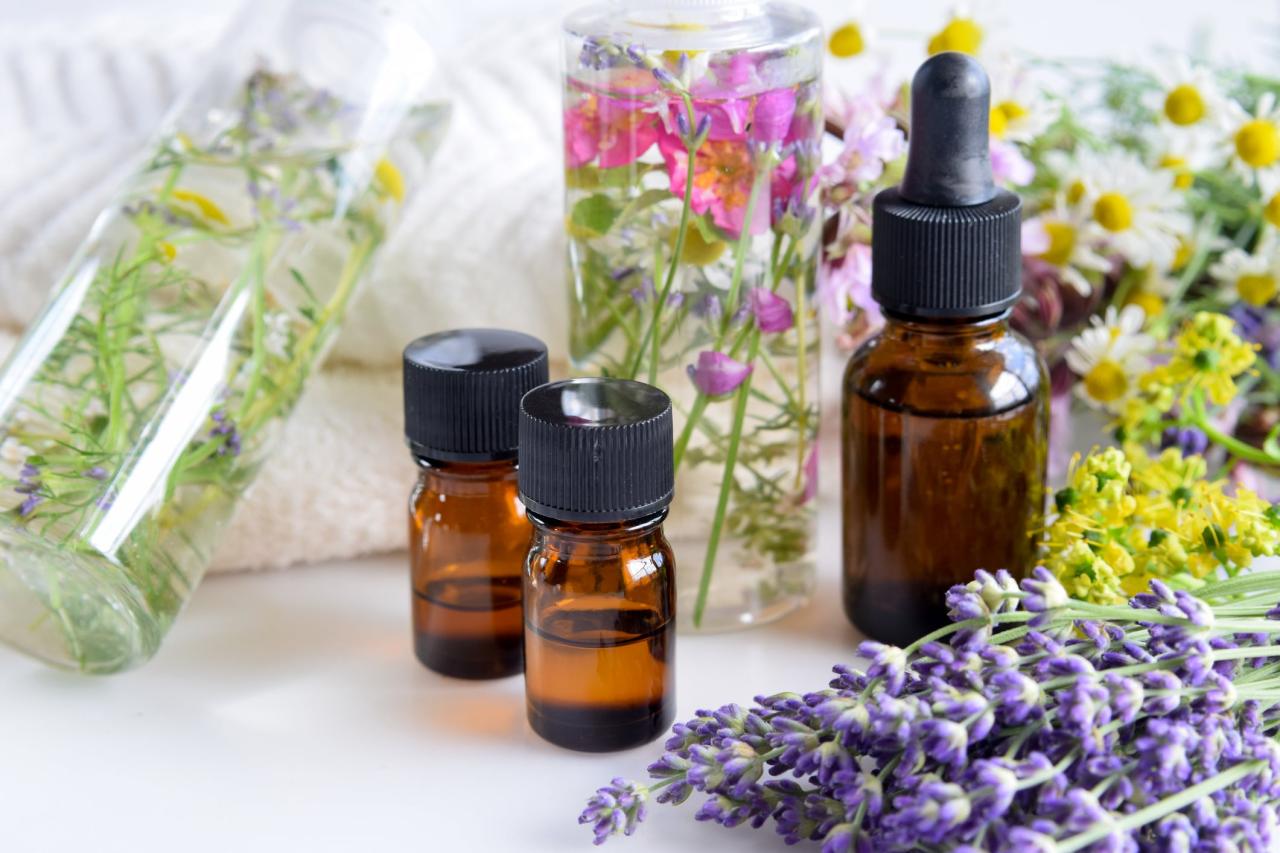Welcome to the aromatic realm of essential oils, where scents transcend mere fragrances and become powerful allies for our well-being. Aromatherapy oils have captivated humanity for centuries, weaving a tapestry of physical, emotional, and cognitive benefits. Prepare to embark on an enchanting journey as we delve into the captivating world of aromatherapy oils, unraveling their secrets and unlocking their therapeutic potential.
In this comprehensive guide, we will delve into the heart of aromatherapy, exploring the diverse range of essential oils and their remarkable properties. Discover how these fragrant elixirs can alleviate stress, promote restful sleep, boost mood, and support overall health.
We will also explore the various methods of using aromatherapy oils, empowering you to create customized blends that cater to your specific needs.
Aromatherapy Oil Overview

Aromatherapy is a holistic therapy that utilizes essential oils extracted from plants to promote physical, emotional, and mental well-being. These oils are highly concentrated and contain therapeutic compounds that interact with the body through inhalation or topical application.
A wide range of essential oils is used in aromatherapy, each with its unique properties and benefits. Some common aromatherapy oils include:
Essential Oils and their Properties
- Lavender oil:Relaxation, sleep, stress relief
- Peppermint oil:Energy boost, headache relief, nausea
- Tea tree oil:Antibacterial, antifungal, skin care
- Eucalyptus oil:Respiratory support, decongestant
- Lemon oil:Mood boost, cleaning, air purification
- Frankincense oil:Pain relief, inflammation reduction, wound healing
- Chamomile oil:Calming, sleep aid, skin care
- Ylang-ylang oil:Mood enhancement, stress relief, aphrodisiac
- Rose oil:Skin care, emotional balance, relaxation
Benefits of Aromatherapy Oils
Aromatherapy oils offer a wide range of physical, emotional, and cognitive benefits. These oils are extracted from plants and contain concentrated volatile compounds that interact with our bodies and minds.
Physically, aromatherapy oils can alleviate pain, reduce inflammation, and improve sleep. For example, lavender oil has been shown to promote relaxation and reduce stress, while peppermint oil can help improve digestion and reduce headaches.
Emotional Benefits
Emotionally, aromatherapy oils can help reduce stress, anxiety, and depression. Certain oils, such as chamomile and ylang-ylang, have calming effects that can help soothe nerves and promote relaxation. Other oils, like bergamot and grapefruit, can help uplift mood and boost energy levels.
Cognitive Benefits
Aromatherapy oils can also improve cognitive function. Some oils, such as rosemary and peppermint, have been shown to enhance memory and concentration. Other oils, like lemon and orange, can help reduce mental fatigue and improve alertness.
Applications of Aromatherapy Oils
Aromatherapy oils offer a diverse range of applications, enabling users to harness their therapeutic properties through various methods.
Diffusion
Diffusion involves dispersing essential oils into the air using a diffuser, which can be electric, ultrasonic, or heat-based. This method creates a fragrant atmosphere, allowing for inhalation of the oil’s volatile compounds. It is ideal for purifying the air, promoting relaxation, and enhancing overall well-being.
Inhalation
Direct inhalation of essential oils is a simple yet effective method. A few drops of oil can be placed on a tissue or handkerchief and inhaled deeply. This method provides immediate access to the oil’s therapeutic effects, bypassing the need for a diffuser.
Topical Application
Aromatherapy oils can be diluted with carrier oils, such as coconut or jojoba oil, and applied topically to the skin. This method allows for localized absorption of the oil’s active compounds, providing targeted relief for specific areas of the body.
It is commonly used for massage, skincare, and pain management.
Safety Considerations
While aromatherapy oils offer numerous benefits, it’s essential to be aware of potential risks and contraindications to ensure safe use.
Certain essential oils may cause skin irritation or allergic reactions in some individuals. Always perform a patch test on a small area of skin before applying it more widely.
Dilution
Essential oils are highly concentrated and should always be diluted before topical application. Mixing them with a carrier oil, such as jojoba, coconut, or almond oil, helps reduce the risk of skin irritation.
Pregnancy and Medical Conditions
Some essential oils, like clary sage and pennyroyal, are contraindicated during pregnancy. Certain oils, such as eucalyptus and rosemary, should be avoided by individuals with epilepsy or high blood pressure.
Ingestion
Essential oils are not intended for ingestion and can be toxic if swallowed. Avoid using them internally unless under the guidance of a qualified healthcare professional.
Other Considerations
- Store essential oils in a cool, dark place away from children and pets.
- Do not use essential oils on infants or young children without consulting a pediatrician.
- Avoid using essential oils near open flames or heat sources.
Choosing and Using Aromatherapy Oils
Selecting the right aromatherapy oils is crucial for an effective experience. Consider the following factors:
- Quality:Opt for high-quality oils from reputable brands that adhere to industry standards.
- Purity:Ensure oils are free from adulterants or additives, such as synthetic fragrances or solvents.
- Individual Preferences:Choose scents that resonate with your personal preferences and evoke desired emotions.
Storing and Maintaining Aromatherapy Oils
Proper storage and maintenance extend the shelf life and effectiveness of aromatherapy oils:
- Dark Glass Bottles:Store oils in dark glass bottles to protect them from light degradation.
- Cool and Dry Environment:Keep oils in a cool, dry place, away from direct sunlight and heat sources.
- Tightly Sealed:Ensure bottles are tightly sealed to prevent evaporation and contamination.
- Shelf Life:Most aromatherapy oils have a shelf life of 1-2 years; citrus oils have a shorter lifespan.
Final Conclusion
As we conclude our aromatic adventure, let us reflect on the transformative power of aromatherapy oils. These fragrant treasures offer a natural and holistic approach to well-being, inviting us to harness the healing power of nature. Whether you seek relaxation, rejuvenation, or a boost of vitality, aromatherapy oils provide a versatile and effective solution.
Embrace the aromatic embrace of essential oils and unlock a world of boundless possibilities for your mind, body, and spirit.